風蕭蕭_Frank
以文會友全球化並未消亡,而是需要重置
https://讚助.bloomberg.com/article/sc/globalization-isn-t-dead-it-needs-a-reset
受到戰爭的困擾、供應鏈斷裂的破壞、致命流行病的破壞以及快速通貨膨脹的加劇——長期以來塑造我們世界的全球化力量麵臨著毀滅的危險。
一些政治家、經濟學家和專家宣布全球化已死。 更多的人表明我們正在見證經濟的快速下降。 隨著世界從一場危機轉向下一場危機,反對者的聲音日益響亮,而去全球化言論塑造了全球媒體的敘事。
對於一些人來說,全球化的消亡並非不受歡迎。 它被指責造成經濟發展不平衡、文化同質化、環境退化、剝削外國工人等等。 一波民族主義運動呼應了人們對現行多邊體係日益增長的不滿。 與此同時,近期美元的走強突顯了經濟一體化的危險,美元的上漲將世界各地的貨幣推入通脹背景下的惡性循環。
渣打銀行集團董事長何塞·維納爾斯在近期舉行的一次早餐會上表示:“美聯儲的利率行動以及由此導致的美元走強給幾個新興市場的資本外流帶來了挑戰。” 渣打銀行在華盛頓特區舉行的國際貨幣基金組織和世界銀行集團 2022 年年會上表示:“這使得外債水平較高的低收入國家的生活變得更加困難。”
然而,全球化有它的擁護者,這是有充分理由的。 它增加了全球資本流動,以更低的價格生產出更好的產品,先進的技術和創新,並改善了國際合作。 全球化也改善了數十億人的生活。 1988年至2013年全球化快速發展時期,全球貧困人口比例從35%下降至10.7%。 [1]
維尼亞爾斯指出:“全球化被歸咎於新冠病毒的迅速傳播,但也被歸咎於疫苗的開發和部署相對較快地得到解決。” “它因幫助數百萬人擺脫貧困而受到推崇,但也因為收益分配不均而導致個人和國家陷入下行周期。 當然,全球化是有等級之分的,不能如此簡單地、以如此鮮明的二分法來描述全球化。 確實需要重新調整全球化,使其更加公正、公平和可持續。 但改革或取代該係統的最佳方法是什麽呢?”
在這裏停留
首先也是最重要的一點,我們必須承認,過去幾十年建立的許多關係太深厚,無法放鬆,帶來的好處也太大,無法放棄。 貿易、數據和資本流動表明全球化將持續下去。
左起:渣打銀行集團主席 José Viñals; Anne Applebaum,記者兼國際事務專家; 傑裏米·西格爾 (Jeremy Siegel),賓夕法尼亞大學沃頓商學院金融學羅素·帕爾默 (Russell E. Palmer) 名譽教授
“國際貿易確實是許多文明成功的關鍵,”賓夕法尼亞大學沃頓商學院金融學名譽教授傑裏米·西格爾 (Jeremy Siegel) 在早餐會上與維納爾斯交談時說道。 “回顧過去的一個世紀,大規模製造、轉讓技術以及創建能夠在其他地方生產所有這些商品的基礎設施的能力,無論是在經濟上還是在社會上都是一項重大轉變。 今天的問題是我們如何保持經濟專業化和全球化帶來的成果?”
2021 年全球貿易額達到創紀錄的 28.5 萬億美元,較 2019 年大流行前的水平增長 13%。 [2] 盡管經濟增長放緩、通貨膨脹和貨幣政策變化等因素綜合作用,世界貿易組織 (WTO)、國際貨幣基金組織和經合組織預測未來貿易增長將減速,[3] 全球供應鏈和貿易走廊比以往任何時候都更加一體化。 例如,亞太地區經濟體之間的貿易去年達到了三十年來的最高水平。[4] 世貿組織最近記錄了生效的區域貿易協定 (RTA) 數量以及新的 RTA 通知的數量創紀錄。[5]
消費者發揮著巨大的作用。 2020年,全球跨境電商訂單達93億筆。[6] 大約 60% 是洲際酒店。 保守估計表明,隨著消費者習慣和偏好的變化,跨境電子商務的商品價值將從 2020 年的 3000 億美元左右達到 2030 年的 1 萬億美元[7]。
不斷增長的數字連接支撐了這一趨勢。 在新冠疫情大流行的頭兩年,全球上網人數增加了 7.82 億人。[8] 數字化持續改變社會、經濟以及人們互動的方式。 隨著數字交互在我們的生活中變得越來越重要,每月的全球數據流量
預計 ffic 將從 2020 年的 230 艾字節增加到 2026 年的 780 艾字節,增加兩倍以上。[9]
“文化、信息和政治思想的全球化正在以前所未有的速度和方式發生,”《紐約時報》暢銷書作家、記者和國際事務專家安妮·阿普爾鮑姆在早餐會上說道。 “ 我們現在擁有全球化的互聯網,其中基本上隻有單一對話。 這意味著每個國家都需要思考它的運作方式以及如何理解它,不僅在國內,而且在國外。”
資本也繼續跨境流動。 2021年,在並購以及國際項目融資快速增長的推動下,全球外國直接投資流量達到1.58萬億美元[10]。 經濟逆風破壞了 2022 年大部分時間的勢頭,但資金跨境尋求機會的長期趨勢仍然完好無損,並且在可預見的未來仍將如此。
重新調整全球化
雖然商品、數據和資本的流動表明,長期以來定義我們世界的聯係將繼續存在,但我們必須重新調整它們,以確保整個 21 世紀的公平和可持續增長。
維納爾斯表示:“在新的數字平台和新興技術的推動下,貿易已經從商品和服務的交換發生了根本性的變化,包括數據、想法和資本。” “我們現在需要一個能夠解釋這些變化並解決當前問題的全球貿易體係,使其變得更加容易獲得和可持續。”
將欠發達市場和小企業納入全球貿易至關重要。 中小企業 (SME) 約占全球企業的 90% 和就業人數的一半以上。[11] 它們還貢獻了新興經濟體 GDP 的 40%。 [12] 全球化需要為中小企業提供參與全球供應鏈的機會。
技術可以提高全球貿易的參與度,在生產力、敏捷性、可見性、彈性等方麵帶來好處。 然而,疫情凸顯了中小企業在采用技術方麵麵臨的挑戰。 全球隻有 23% 的企業能夠將資源投入到新的數字工具上,其中大多數人將融資和技能不足視為主要障礙。 [13]
當世界努力在本世紀中葉實現淨零排放目標時,可持續性也必須始終放在首位。 這意味著解決從運輸排放和商品驅動的森林砍伐到與供應鏈相關的環境破壞等各個方麵長期存在的擔憂。 成功需要製定全球治理標準和監管一致性以實現可持續發展。 渣打銀行的可持續貿易融資提案[14]等私營部門舉措也將發揮至關重要的作用,該提案旨在幫助企業在其生態係統和供應鏈中實施更可持續的做法。
各種數字貿易生態係統之間的互操作性也需要我們的關注,因為它是擴大數字貿易流量的必要條件——例如,涉及所有權轉讓和提單等流通票據的貿易流量。 為了實現公平增長,我們必須製定適合未來的政策和框架,確保不同發展階段的市場、平台和企業之間的互操作性,連接實體和金融供應鏈,幫助創新獲得更廣泛的采用。
“我們需要明白,全球化確實是一股向善的力量,”維納爾斯補充道。 “它使數億人擺脫了貧困,為全球經濟中許多市場的巨大一體化做出了貢獻。 但同樣,還有很多邊緣需要打磨。 渣打銀行所主張的事情之一就是重塑全球化,使其更加公平、更具包容性和更可持續。”
Globalisation Isn't Dead, It Needs a Reset
https://sponsored.bloomberg.com/article/sc/globalisation-isn-t-dead-it-needs-a-reset
Beset by war, upended by broken supply chains, ravaged by a deadly pandemic and exacerbated by rapid inflation–the globalising forces that have long shaped our world threaten to come undone.
Some politicians, economists and experts have pronounced globalisation dead. Many more suggest we’re witnessing a rapid decline. Day by day, the chorus of naysayers grows louder, while de-globalisation rhetoric shapes the global media narrative as the world lurches from one crisis to the next.
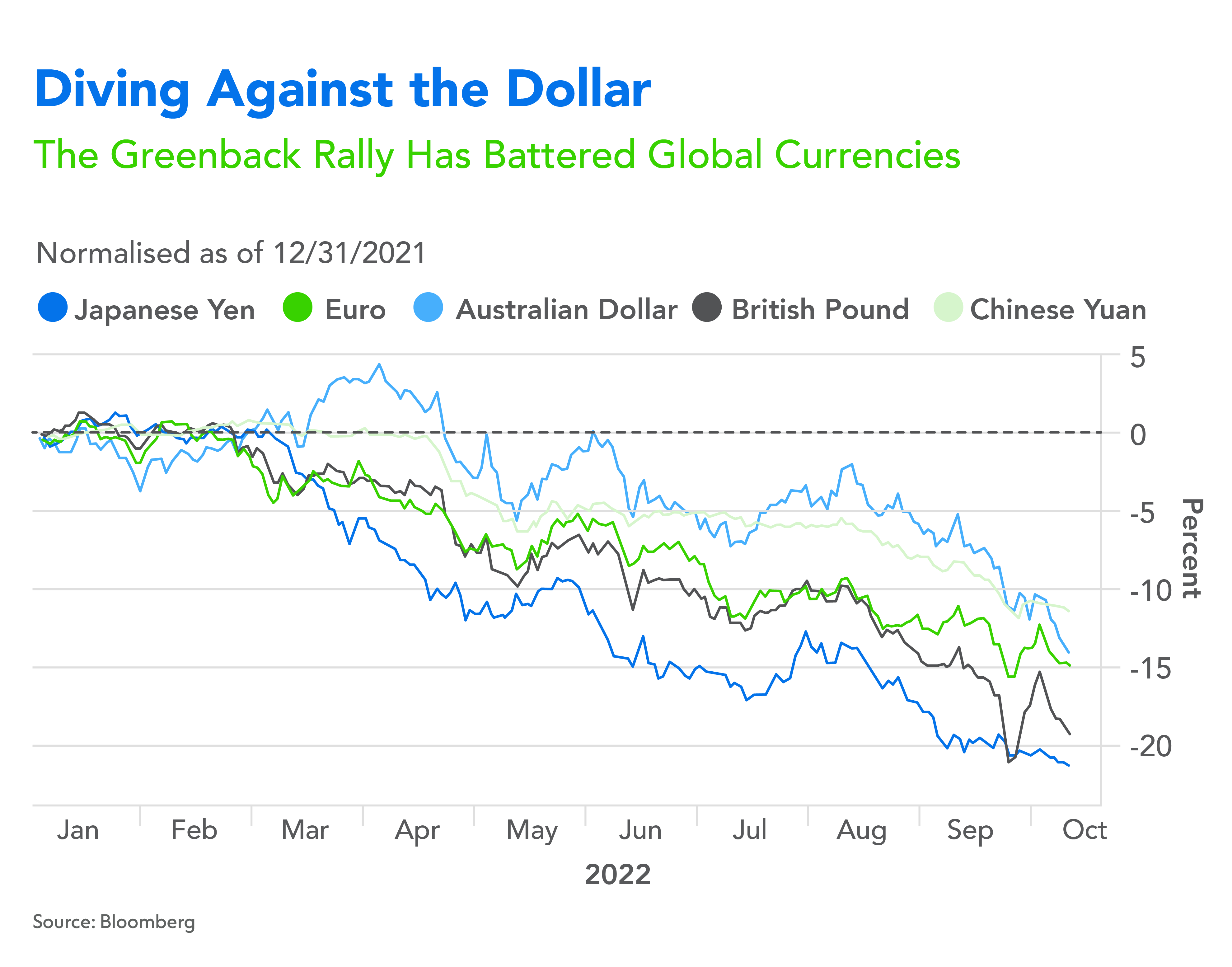
For some, globalisation’s demise would not be unwelcome. It has been blamed for uneven economic development, cultural homogenisation, environmental degradation, the exploitation of foreign workers and much more. A wave of nationalist movements echoes growing discontent with the prevailing multilateral system. Meanwhile, recent US Dollar strength underscores the perils of economic integration, with the greenback’s rally pushing currencies across the world into a spiral of doom against a backdrop of inflation.
“The Federal Reserve’s actions on interest rates and resulting dollar strength have created challenges in terms of capital outflows in several emerging markets,” José Viñals, Group Chairman of Standard Chartered said at a recent breakfast session on resetting globalisation in an era of uncertainty, hosted by Standard Chartered at the 2022 Annual Meetings of the International Monetary Fund and the World Bank Group in Washington, D.C. “This has made life more difficult in low-income countries with high levels of external debt.”
Yet, globalisation has its champions, and for good reason. It has increased the global flow of capital, yielded better products at lower prices, advanced technology and innovation and improved international collaboration. Globalisation also bettered billions of lives; in the period of rapid globalisation from 1988 to 2013, the global poverty headcount ratio declined from 35% to 10.7%.[1]
“Globalisation has been blamed for the rapid spread of Covid, but also for the comparatively quick resolution with the development and deployment of vaccines,” Viñals noted. “It is lionised for lifting millions out of poverty but also for the uneven distribution of gains that have trapped individuals and countries in a downward cycle. Surely, there are gradations, and globalisation cannot be described so simply and in such stark dichotomies. Recalibrating globalisation to make it more just, equitable and sustainable is surely called for. But is the best approach to reform or replace that system?”
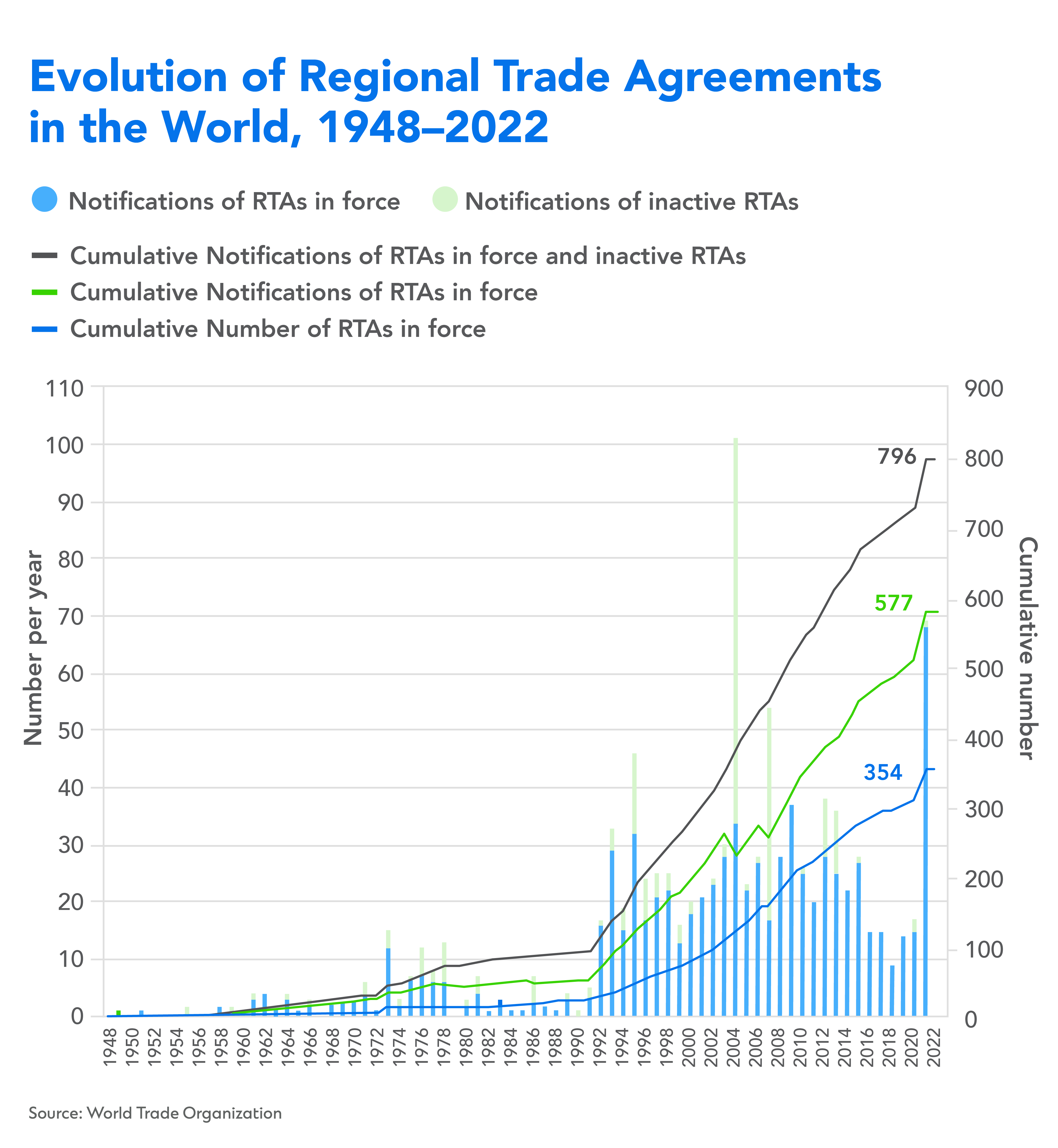
Here to Stay
First and foremost, we must acknowledge that many of the relationships built over the past several decades are too deep to unwind and the benefits too great to relinquish. Trade, data and capital flows suggest globalisation is here to stay.
-medium.jpg) From left: José Viñals, Group Chairman of Standard Chartered; Anne Applebaum, journalist and international affairs expert; Jeremy Siegel, Russell E. Palmer Professor Emeritus of Finance at The Wharton School of the University of Pennsylvania
From left: José Viñals, Group Chairman of Standard Chartered; Anne Applebaum, journalist and international affairs expert; Jeremy Siegel, Russell E. Palmer Professor Emeritus of Finance at The Wharton School of the University of Pennsylvania
“International trade was really the key to success of so many civilisations,” Jeremy Siegel, Russell E. Palmer Professor Emeritus of Finance at The Wharton School of the University of Pennsylvania said during the breakfast, in conversation with Viñals. “Looking back at the past century, the ability to manufacture at scale, transfer technology and to create infrastructure that could produce all these goods elsewhere was a major shift both economically and socially. The question today is how do we keep the gains that economic specialisation and globalisation bring?”
Global trade reached a record $28.5 trillion in 2021, increasing 13% relative to pre-pandemic levels of 2019.[2] While a confluence of waning economic growth, inflation and changing monetary policy has the World Trade Organisation (WTO), IMF and OECD forecasting a deceleration in trade growth ahead,[3] global supply chains and trade corridors are more integrated than ever. Trade among APAC economies, for instance, reached its highest level in three decades last year.[4] And the WTO recently recorded a record number of Regional Trade Agreements (RTA) in force as well as new RTA notifications.[5]
Consumers play a huge role. In 2020, the world recorded 9.3 billion cross-border e-commerce orders.[6] Around 60% were intercontinental. Conservative estimates suggest cross-border e-commerce will reach $1 trillion in merchandise value by 2030 from around $300 billion in 2020[7] as consumer habits and preferences evolve.
Growing digital connectivity underpins that trend. An additional 782 million people came online globally in the first two years of the Covid pandemic.[8] Digitalisation continues to change society, the economy and the ways in which people interact. As digital interactions become increasingly central to our lives, monthly global data traffic is forecast to more than triple from 230 exabytes in 2020 to 780 exabytes by 2026.[9]
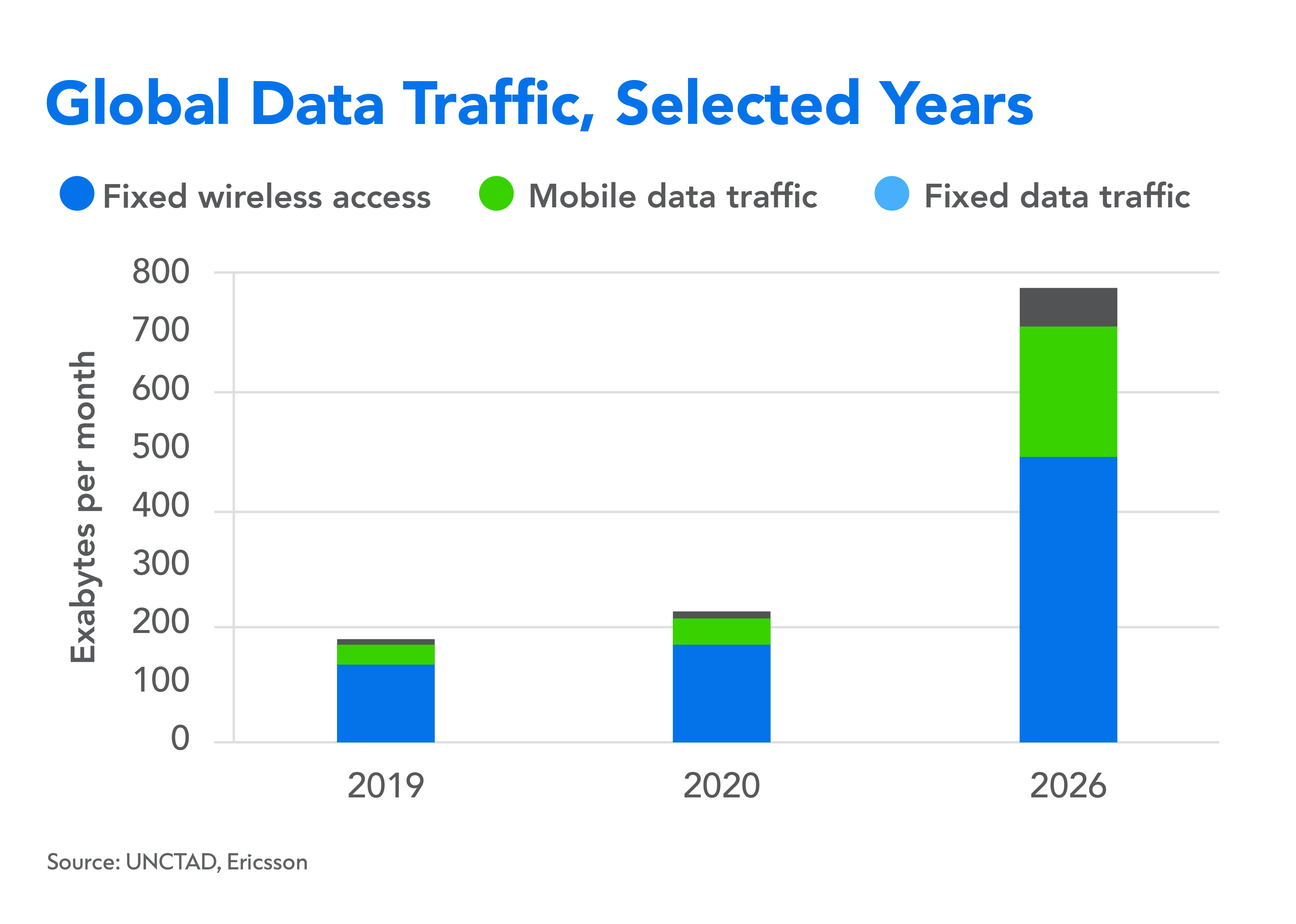
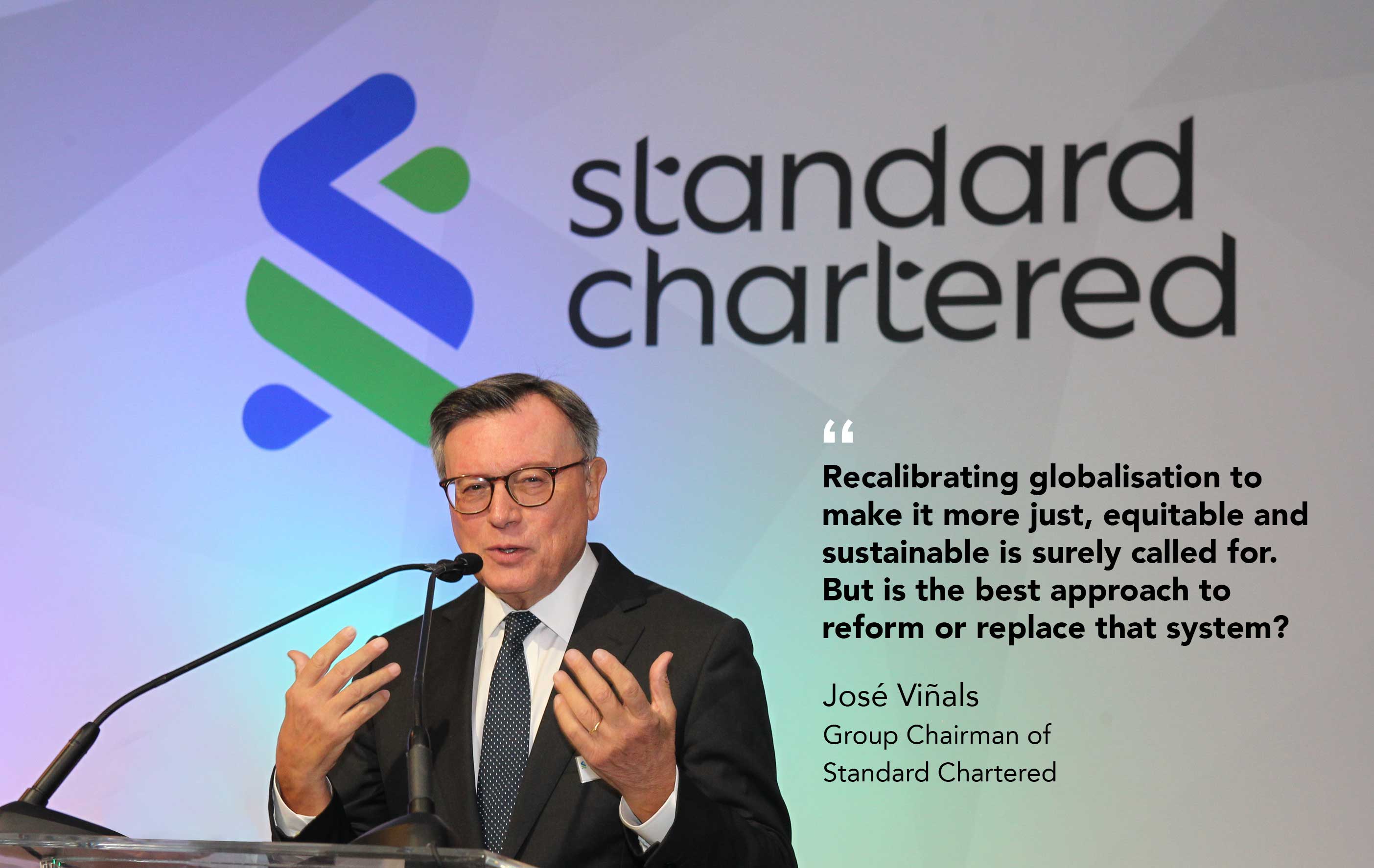
“The globalisation of culture, of information and of political ideas is happening much faster and in a different way than it had ever happened before,” Anne Applebaum, New York Times bestselling author, journalist and international affairs expert said at the breakfast. “ We now have a globalised internet, in which there's essentially a single conversation. And that means that every country needs to think about how it plays and how it's understood, not only at home, but also abroad.”
Capital continues to flow across borders, too. In 2021, global foreign direct investment flows reached $1.58 trillion,[10] driven by mergers and acquisitions as well as rapid growth in international project finance. Economic headwinds upended momentum for much of 2022, yet the long-term trend of money pursuing opportunity across borders remains intact and will for the foreseeable future.
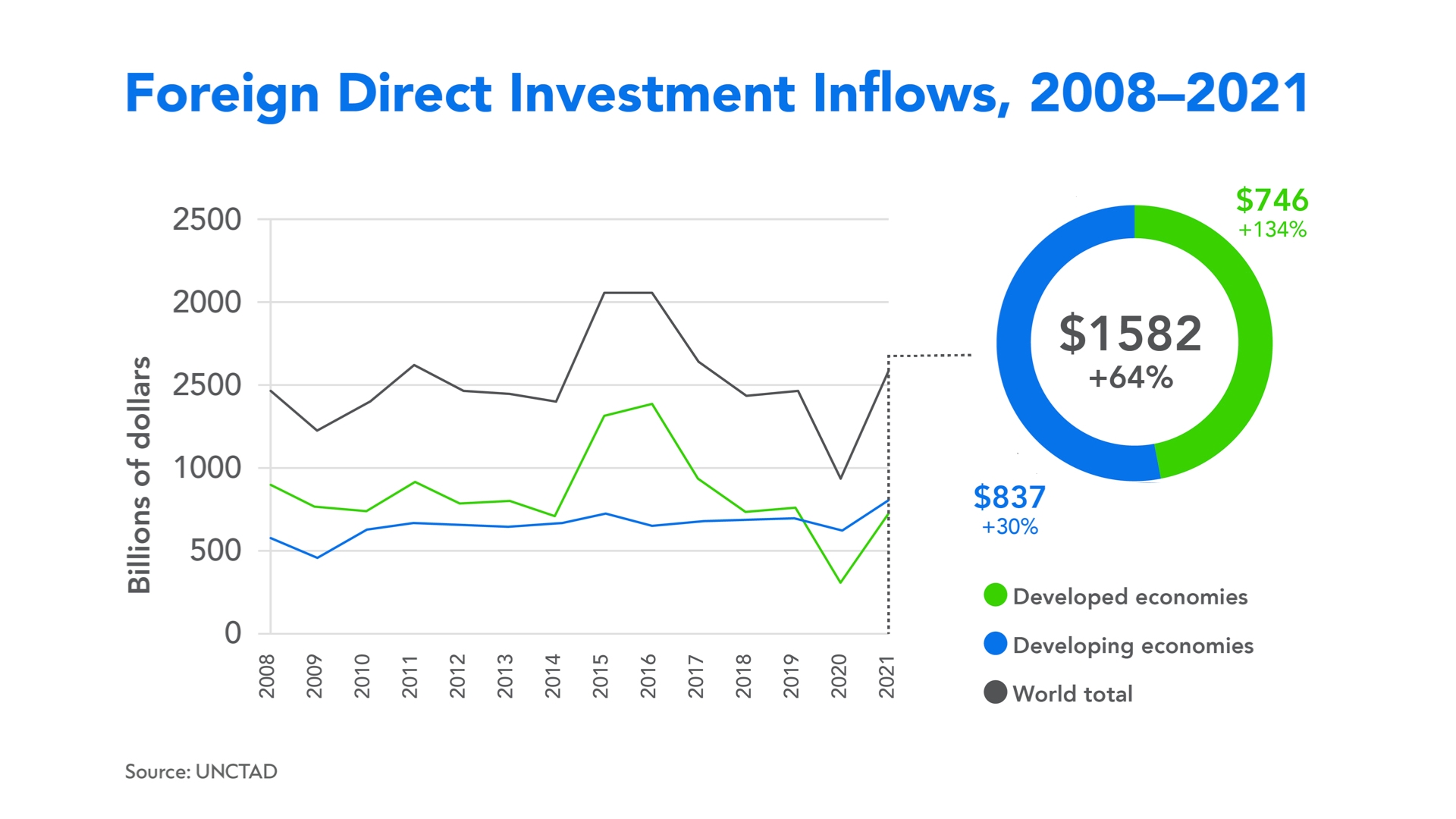
Recalibrating Globalisation
While the flow of goods, data and capital indicate the connections that have long defined our world are here to stay, we must recalibrate them to ensure equitable and sustainable growth throughout the 21st century.
“Trade has changed fundamentally from the exchange of goods and services to include data, ideas and capital, facilitated by new digital platforms and emerging technologies,” Viñals said. “We now need a global trade system that accounts for these shifts and addresses current issues, to become more accessible and sustainable.”
Integrating less developed markets and small businesses into global trade will prove vital. Small and Medium-Sized Enterprises (SMEs) account for roughly 90% of businesses and more than half of employment worldwide.[11] They also contribute up to 40% of GDP in emerging economies.[12] Globalisation needs to give SMEs the opportunity to participate in global supply chains.
Technology can lift participation in global trade, yielding benefits across productivity, agility, visibility, resilience and more. Yet, the pandemic highlighted challenges that SMEs face with tech adoption. Only 23% globally were able to dedicate resources to new digital tools, with most citing inadequate financing and skills as key barriers.[13]
Sustainability must also remain front of mind as the world strives to achieve net-zero targets by the middle of this century. That means addressing longstanding concerns around everything from transport emissions and commodity-driven deforestation to supply-chain-linked environmental destruction. Success entails the development of global governance standards and regulatory coherence for sustainability. Private sector initiatives such as Standard Chartered’s Sustainable Trade Finance Proposition,[14] which is designed to help companies implement more sustainable practices across their ecosystems and supply chains, will also play a crucial role.
Interoperability between the various digital trade ecosystems also demands our attention as it is a requisite for the scale up of digital trade flows–for example, those involving transfer of title and negotiable instruments such as bills of lading. To achieve equitable growth, we must develop future-fit policies and frameworks that ensure interoperability across markets, platforms and businesses at different stages of advancement, linking physical and financial supply chains and helping innovations achieve wider adoption.
“We need to understand that globalisation has been really a force for good,” Viñals added. “It has lifted hundreds of millions of people out of poverty, it has contributed to tremendous integration of many markets in the global economy. But again, there are many edges that need to be polished. One of the things that Standard Chartered stands for is resetting globalisation to make it fairer, more inclusive and more sustainable.”




